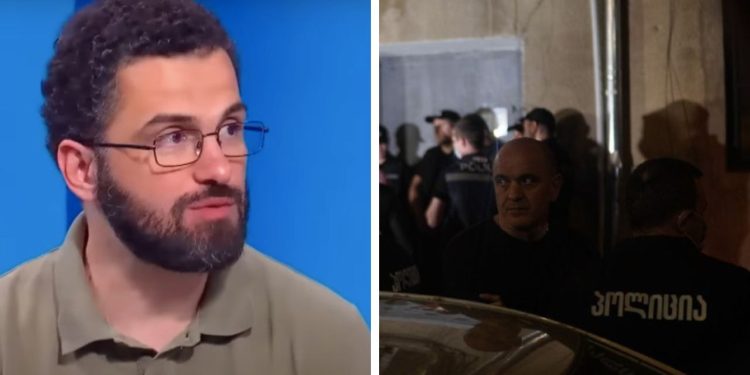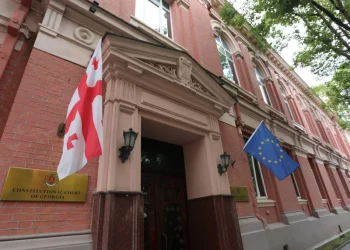The Ministry of Internal Affairs publishes a statement regarding the arrest of military blogger and activist Ucha Abashidze.
The police entered Abashidze’s house in the evening of May 9. After his arrest, it became known that the charge against him involved the illegal purchase and storage of weapons and ammunition. However, the statement of the Ministry of Internal Affairs also talks about the facts of the cyber attack on the websites of the Ministry of Justice and the Parliament of Georgia.
“Employees of the Central Criminal Police Department of the Ministry of Internal Affairs started an investigation into the facts of the cyber-attack on the websites of various government agencies, namely the Ministry of Internal Affairs, the Ministry of Justice and the Parliament of Georgia, under Article 286, Part 4 of the Criminal Code, which was committed against the subject of a critical information system. involves tampering with data or a computer system.
Within the framework of the mentioned investigation, investigative activities were conducted and are still ongoing in Tbilisi and Batumi, including in Tbilisi, I. In one of the residential apartments located in Abashidze #22, from which law enforcement officers seized illegal firearms and ammunition as a result of the search. The law enforcement officers charged and arrested U.A.
The investigation continues under Article 286, Part 4 and Article 236, Part 3 of the Criminal Code, which refers to the violation of computer data or computer system committed against the subject of a critical information system and the illegal purchase and storage of firearms and ammunition,” reads the statement of the Ministry of Internal Affairs.
Abashidze was not allowed to have contact with anyone during the investigation. Lawyers were not allowed to visit Abashidze, which was considered by the Association of Young Lawyers to be a limitation of Abashidze’s right to defense.
Ucha Abashidze is an active participant of the anti-Russian protest. Through social networks, he systematically criticized the Russian law, the government’s actions, and shared with the protestors advice on how to protect themselves from the violent actions of the police and special forces.
The Georgian Ministry of Internal Affairs (MIA) conducted searches at different locations in Georgia’s cities, including Tbilisi, within the framework of its investigation into cyber attacks on websites of government institutions.
The Ministry said the investigation is launched under Article 286 of the Criminal Code of Georgia, which envisages damage to computer data and the system keeping vitally significant information.
Investigative activities continue in Georgia’s other cities.













